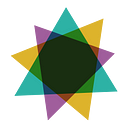Member-only story
Mico Yuk on the Importance of Community and the Paradigm Shift in Business Intelligence
The CEO of analytics consultancy, BI Brainz reflects on her career path and how to help companies make sense of their data.
“I am heading into a conference with 25K tech women which is partly why I’m high octane right now!!!” That’s the message I received from the CEO and Co-Founder of BI Brainz, Mico Yuk. I had reached out to her to be a part of my ongoing series talking to thought leaders such as Ben Jones, Nick Caldwell and Matt David to get her insights on the future of BI. After years of being a sought-after consultant, Mico formed BI Brainz to “help companies take their data and make sense of it in a fun, visual way” using their data storytelling methodology and templates. In addition to running her own analytics consultancy, she’s an author, speaker and host of her own podcast, Analytics on Fire!
Mico was about to enter the Grace Hopper Celebration (GHC) when she responded to my request for an interview. She was pumped up to attend THE largest gathering of women technologists in the United States. GHC is an event run…

